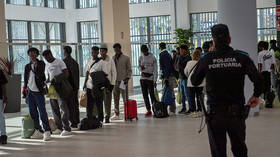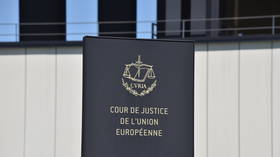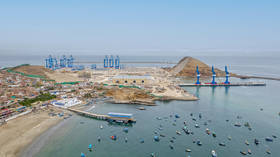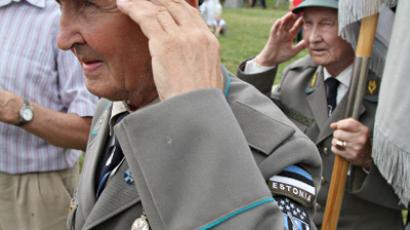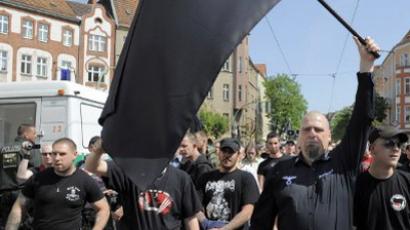Anti-Nazi group leader arrested in Estonia over bribery allegations

The head of a local anti-Nazi group has been arrested as part of an investigation into alleged corruption, Estonian TV channels reported Sunday. The Russian minority in Estonia claims his arrest is politically-motivated.
Andrey Zarenkov, the leader of an activist group Estonia Without
Nazism and a community center in the town of Maardu, was detained
on Saturday night for allegedly receiving a bribe as the head of
the Maardu center, local prosecutors said. A man suspected of
giving the bribe has also been arrested. Authorities have
conducted searches in Zarenkov’s house and office.
Zarenkov, a former chairman of the Constitution Party and a
member of the Coordination Council of Russian Compatriots, has
for decades fought to protect Russian minorities. He is also a
harsh critic of the "non-citizen" status allocated to
most Russians that stayed in the country after the collapse of
the USSR. Such status denies them a national passport and
prevents them from voting.
The prosecutor's Office explained the stem from Zarenkov’s role
in the community center’s financial dealings, rather than his
political activity.
“This particular investigation relates to economic activity
in the community hall for possible corruption,” said
Northern District Public Prosecutor's Office spokesman Arno Moose
.
The spokesman added that Zarenkov will be initially detained for
48 hours to determine the weight of the evidence collected in his
house and office.
“After all investigations have been made, the prosecutor will
decide what to do next. We have conducted searches, but what
exactly was found, we cannot disclose at this time."
Nicholas Svets from the Maardu People’s House confirmed news of
Zarenkov’s arrest and police search, saying that he was
“shocked” that police suspected him of bribes, Estonian
Delfi reports.
Former mayor and the current chairman of the council, Georgi
Bostrov was quoted by the same publication as saying that
Zarenkov was “a good man” . He could not provide any
further comment as the authorities did not notify Bostrov of
Zerenkov’s arrest.
“For decades, I was engaged in internal security and know
that now this [fighting corruption] is the prerogative of law
enforcement. It is difficult to say what kind of bribe we can
speak off when it comes to the People's House," he told
Delfi.
In the meantime, a Union of Russian Schools in Estonia, a local
NGO fighting for the rights of the Russian minority, said in a
statement that the detention of Zarenkov and the searches are
“associated with the social position Zarenkov," who for
decades defended human rights in the European country.
The NGO believes the authorities are investigating Zarenkov for
his role in organizing an international conference on protecting
the rights of the Russian community in the Baltic states.
"Andrei Zarenkov has repeatedly spoken against the violation
of human rights in Estonia. However, these facts cannot be an
aggravating factor in the investigation of any case,”
believes the union.
Union activists say that the allegations against Zarenkov are
groundless, calling on the authorities to “depoliticize
social life in Estonia,” saying that authorities exercise
different “methods of influence depending on their political
convictions.”

The history of Estonia’s role during the Nazi invasion of the
Soviet Union has been controversial. In total, about 80,000
Estonians joined Nazi troops during the war and 3,000 more fought
as volunteers in the Finnish Army, which was also an ally of Nazi
Germany. At the same time, about 30,000 Estonians joined the Red
Army ranks forming the Estonian Rifle Corps.
Russia has repeatedly voiced protests over the glorification of
Nazism in Estonia pointing out that over the past 20 years the
Estonian authorities have not shown due respect to the veterans
of the Estonian Rifle Corps of the Red Army. At the same time,
the veterans who once donned the uniforms of the Waffen SS and
other of Hitler’s formations are greeted by Estonia’s state
officials and receive decorations and awards.
Tensions rose to a head in 2007 with clashes erupting in the
capital Tallinn when the authorities decided to remove the statue
of the Bronze soldier, a tribute to the heroism of the red army,
along with a mass grave of 13 soldiers to a military cemetery on
the outskirts of Tallinn from the city center.
Russians severely criticized the decision to move the memorial,
saying it undermined the role of Soviet soldiers who they see as
liberators.




